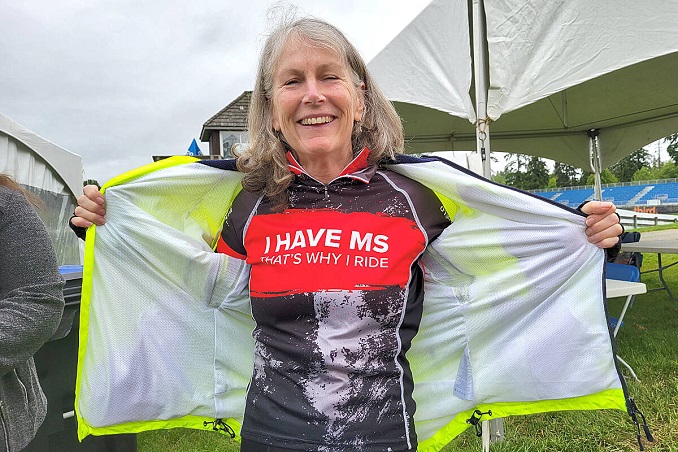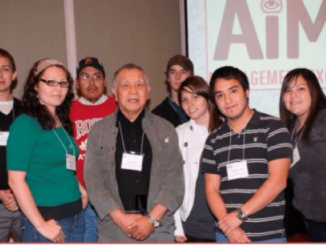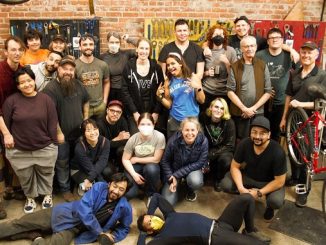MS Canada provides services to people affected by multiple sclerosis (MS) and funds research to find the cause and cure for this disease. We spoke with MS Ambassador and volunteer Marilyn Werseen-Lenzen to find out more about the organization and why she got involved.

Describe your charity/non-profit/volunteer work in a few sentences
MS Canada provides services to people affected by multiple sclerosis (MS) and funds research to find the cause and cure for this disease.
I have volunteered with MS Canada in numerous capacities over the past two decades, from organizing events to sitting on boards and committees and speaking as a person living with MS. The role I am most proud of, and the one I believe has the greatest impact on raising MS awareness, is starting the MS Ambassador program in British Columbia. This program has since expanded coast-to-coast. MS Ambassadors are people who have a connection to MS and through our personal stories, we encourage others to learn more about MS and become involved in supporting the MS community.
What problem does the non-profit aim to solve?
MS Canada’s vision is a world free of MS. To achieve this, our mission is to connect and empower the MS community to create positive change.
When did you start/join it?
When I was diagnosed with MS over 20 years ago, I reached out to MS Canada for support. I needed to talk to someone like me, who understood what it was like to juggle raising two young kids while struggling with MS fatigue. MS Canada connected me with a peer support person – someone with MS who had raised her kids after being diagnosed. Simply knowing there was someone else who felt like I did was impactful. Her tips started me on the right path to balance my energy for the family commitments I had. That support was critical in helping me come to terms with my diagnosis. After suffering a terrible relapse and having to regain my strength, I knew that that support needed to be there for others like me, so I started volunteering with MS Canada.
What made you want to get involved?
I initially started volunteering to help organize a local MS Walk. This was important to me as donations from MS Walk fund support services for people like me who live with MS, and for MS research, which gives me hope. I felt like I was doing something to change the course of the disease for myself and others like me.
What was the situation like when you started?
When I started volunteering, events and programs were very localized and in-person. If you lived outside one of the major centers in Canada, it was difficult to connect with the MS community.
How has it changed since?
Fast forward to today, and much of the world has shifted to virtual space. 20 years ago, if you visited a neurologist and heard the words “you have MS,” you might reach out to a local MS office for support, and most of those offices were open on only a part-time basis. It was often hard to connect with someone immediately.
Today, in just one phone call, text, email or live chat, you have access to the MS Knowledge Network. You will be immediately connected to an MS Navigator that can help you find out information about MS, therapy options, local activities and how to connect with a peer support group either online or in-person.
Many more programs are now being offered virtually, such as wellness programs for people living with MS, support groups, and education sessions. Not only is this a much timelier option, but it also helps a much larger segment of the MS community who live across the country in non-urban centres. Today, MS Canada offers a good hybrid model of online and in-person, local support.

What more needs to be done?
The reason I got involved decades ago still exists today. While the cause of MS is still unknown and there is no cure, many advancements have been made in MS research. An example of this would be the connection found between the Epstein-Barr Virus (EBV) and MS. EBV is a virus that causes mono and has been suspected to be a risk factor for MS. Could more research into this to create a vaccination or treatment for EBV help to prevent MS? Without funding for MS Canada, research into critical issues like
these may not funded. Since 1948, our organization has invested over $212 million in MS research.
Having support just a call or click away is also a lifeline to the MS community, but again funding is required to ensure that MS Canada can continue to provide life-changing programs and resources.
How can our readers help?
More than 90,000 Canadians live with MS, which means that there are more than 90,000 reasons to support MS Canada.
Donations fund critical research and move us closer to a world free of MS. When you donate or participate in our events, you are also ensuring that people affected by MS have access to the information and support that they need, wherever they live. Some examples of our programs available across the country are the MS Knowledge Network and 1:1 peer support.
Do you have any events coming up?
May is MS Awareness Month in Canada. Throughout May, there are numerous events to raise awareness about MS and bring the MS community together. One of these events is the Vancouver MS Walk on Sunday, May 28. It’s a great way to connect with and show support for people who are affected by MS. There are MS Walks happening across the country on May 28, along with a virtual option for people to walk wherever and whenever they would like!
I am also busy preparing for the Fraser Valley MS Bike happening in June. 10 years ago, I set a personal goal for myself to start biking again. During a particularly bad relapse, I lost my balance and was unable to cycle. As my strength increased, I decided to push myself and combine my personal fitness goal with my desire to raise awareness and funds for MS Canada. There was no better way to do this than participating in the two-day 120k cycling event. Not only have I continued to participate in the MS Bike annually, but I have also used it as a platform to show others that even though I have MS, I can continue to do what I love.
Where can we follow the non-profit?
MS Canada is active on Facebook, Instagram, and Twitter.
MS Canada’s website is also a great place to learn more about MS, MS research happening in Canada, events, ways to volunteer, and the programs and services available to people impacted by MS.
You can also visit MS Canada’s blog for stories from our resilient MS community.
PAY IT FORWARD: What is an awesome local charity that you love?
Habitat for Humanity’s RESTORE program



